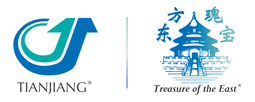Chinese Herbs and Complementary Therapies used for Arthritis
Arthritis is a term that encompasses joint-related pain, inflammation, stiffness and disease. According to the Arthritis Foundation, it is a leading cause of disability with an approximated 92 million adults in the U.S alone suffering from arthritis.
Osteoarthritis, rheumatoid arthritis, fibromyalgia and gout are among its most common forms. Over-the-counter and prescription medications have been commonly used to manage these conditions, but the associated side effects often lead patients to look for alternative treatments.
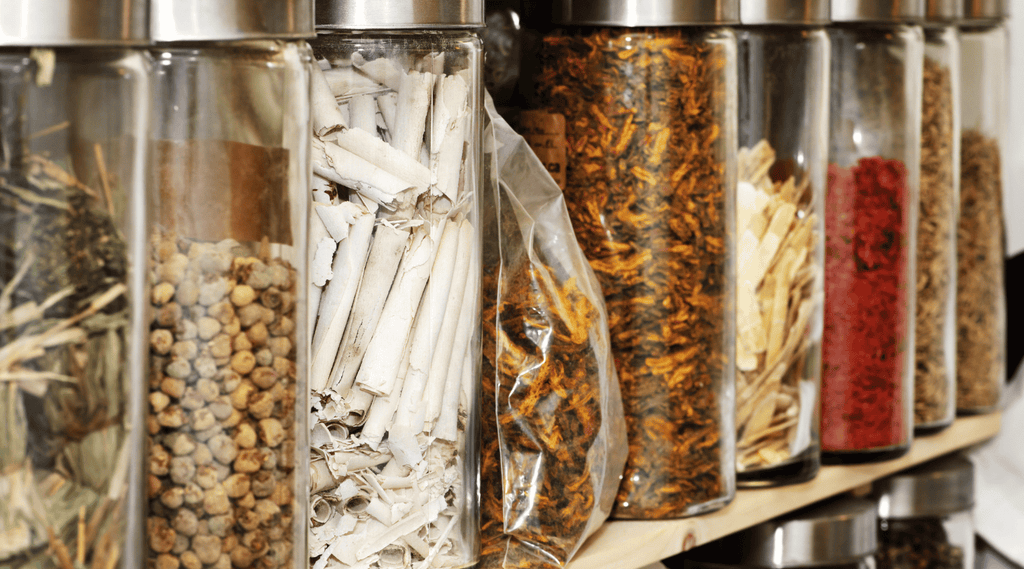
Chinese herbs, renowned for their pain-relieving and anti-inflammatory properties, offer a time-tested alternative or complement to conventional medicine.
What are the best Chinese herbs for arthritis?
The best Chinese herbs for arthritis may be found in four classical formulations: Juan Bi Tang, Shen Tong Zhu Yu Tang, Du Huo Ji Sheng Tang, and Bi Tong Ling.
Before we explore these Chinese herbal formulas for arthritis, let’s learn more about arthritis from a Traditional Chinese Medicine (TCM) perspective.
Understanding Arthritis from a TCM Perspective
From a TCM perspective, arthritis (also referred to as “Bi syndrome”) doesn't just come from wear and tear on the joints, but can result from multiple factors including blockage, pathogenic factors and Kidney deficiency.
Blockage and Arthritis
One of the central theories of Traditional Chinese Medicine is that of the free flow of Qi and Blood throughout the body. This theory of free-flow proposes that health arises when there's unobstructed circulation, and illness happens when a blockage occurs. Hence, arthritis is seen as a blockage in the flow of Qi and Blood, which can lead to pain, inflammation, and stiffness of the joints.
Pathogenic Factors and Arthritis
Arthritis can also be triggered or exacerbated by the invasion of unfavorable environmental factors recognized in TCM as Wind, Cold, Dampness, and Heat, often referred to as external pathogens. These have unique characteristics and can manifest together or individually in different types of arthritis.
Kidney Deficiency and Arthritis
The Kidneys, according to TCM, govern the bones, and thus a deficiency in Kidney energy can lead to skeletal and joint problems, including arthritis. Specifically, TCM suggests that a Kidney Qi Deficiency or Kidney Yang Deficiency can result in arthritis. Other symptoms commonly associated with Kidney deficiency include: weak or sore lower back and knees, feeling of cold, fatigue, and/or frequent urination.
Different Causes of Arthritis Call for Different Chinese Herbs
While arthritis commonly includes joint pain, swelling, and difficulties in joint movement, a TCM practitioner is best qualified to recommend Chinese herbs that are appropriate for each individual and their unique presentation of the condition.
Now that we have a better grasp of TCM’s holistic perspective on arthritis, let’s explore the herbal formulas that may offer hope to those suffering from this condition.
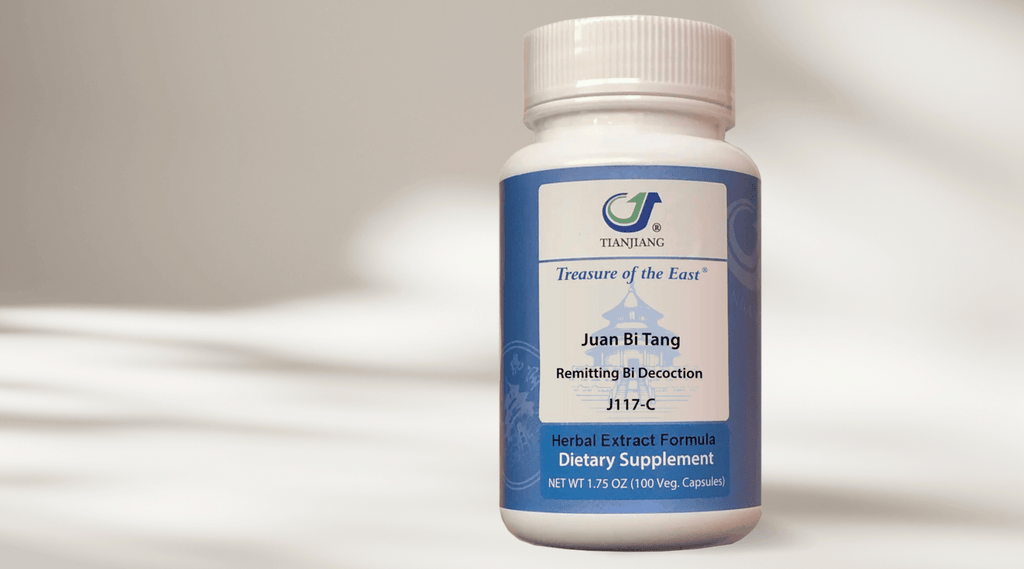
Juan Bi Tang (Remitting Bi Decoction)
Juan Bi Tang is used in a variety of TCM patterns, including Wind-Cold-Damp Bi and Qi and Blood Stagnation.
Consisting of eight herbs, Juan Bi Tang is a warming formula that may provide relief through its purported ability to promote circulation and warm the channels. One such warming herb in this formula is Qiang Huo which disperses exterior cold, dispels wind damp, promotes joints and stops painful obstruction.
For those with arthritis pain that worsens with cold and improves with warmth, Juan Bi Tang may be an appropriate formula. Heaviness and numbness in the limbs, are also commonly seen in this pattern, combined with a slow, slippery, pulse.
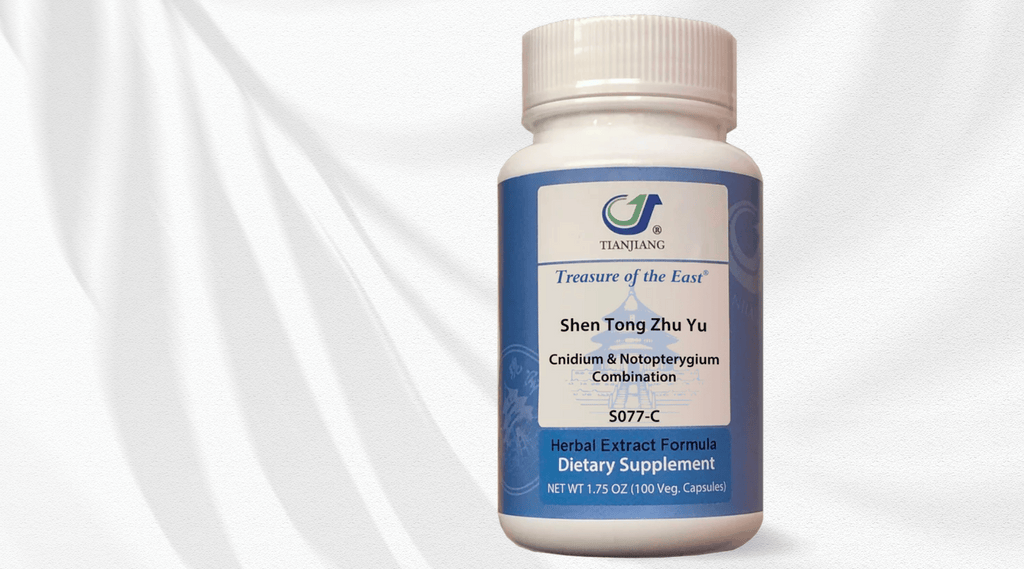
Shen Tong Zhu Yu Tang (Cnidium & Notopterygium Combination)
Shen Tong Zhu Yu Tang is often used when there is painful obstruction due to Qi and blood stagnation.
Consisting of twelve herbs, Shen Tong Zhu Yu Tang belongs to the blood-moving category of formulas. Arthritis caused by blood stagnation is characterized by a stabbing quality of pain, and these individuals will often present with a wiry pulse.
Herbs in this formula such as Chuan Xiong, Tao Ren and Hong Hua invigorate the blood and remove stasis to address painful obstruction in the shoulder, hip, back and elbow.
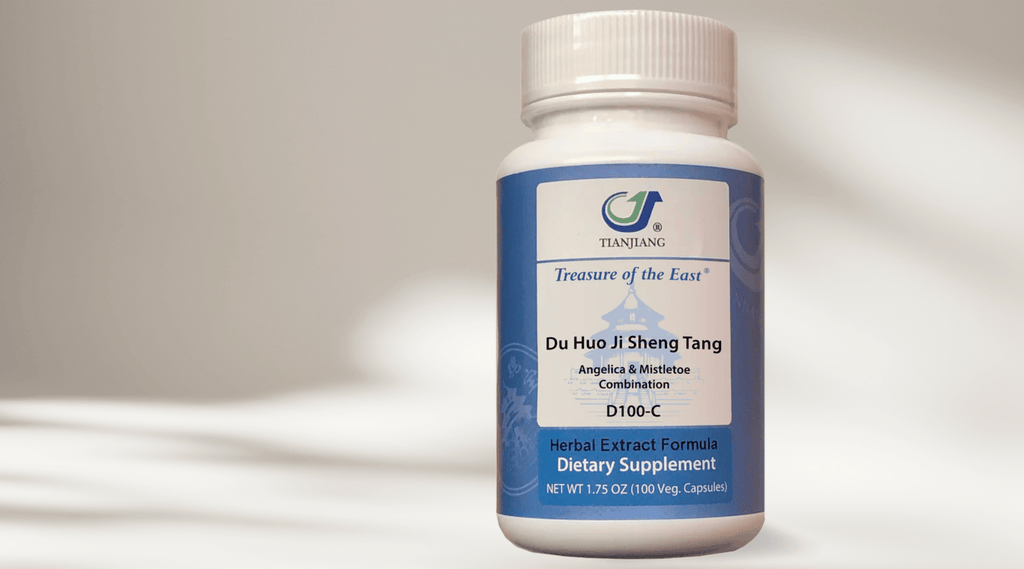
Du Huo Ji Sheng Tang (Angelica & Mistletoe Combination)
Du Huo Ji Sheng Tang is a popular herbal formula used in a variety of TCM patterns, including: Bi Syndrome with Kidney and Liver Deficiency; Bi Syndrome with Qi and Blood Deficiency; Wind-Cold-Damp Invasion of the muscles and bones; and muscle weakness.
Since this type of Bi pain combines with an underlying deficiency, people with this condition typically present with a weak pulse and may experience a weak, cold, painful back, stiffness and numbness in the joints, and weak muscles.
The fourteen herbs in Du Huo Ji Sheng Tang reflect this formula’s many actions, including: Du Huo to dispel wind and damp; Rou Gui, a hot herb, to assist Kidney Yang; and Du Zhong to supplement the Liver and Kidney, and strengthen sinews and bone.
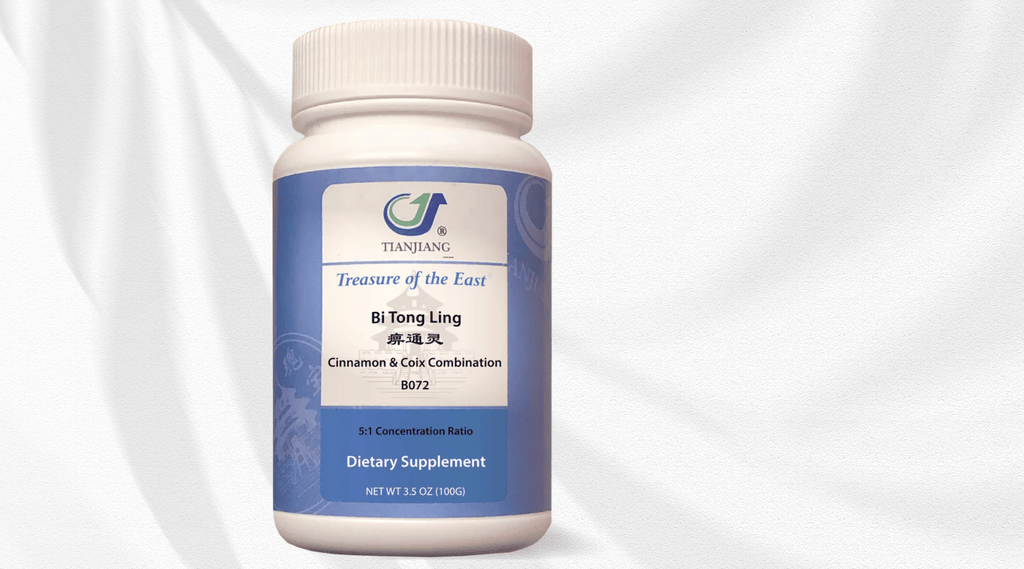
Bi Tong Ling (Cinnamon & Coix Combination)
Bi Tong Ling is a modern formula for Wind-Cold-Damp Bi and painful joints due to Qi and Blood Stagnation.
Among its many herbs, this formulation includes Chuan Niu Xi to benefit the joints, Mu Gua to soothe the sinews, Fang Ji to dispel wind-cold, Wu Yao to move Qi and Ru Xiang to invigorate the Blood and calm pain.
7 Therapies & Self-Care Tips for Managing Arthritis
Here are seven self-care tips for managing arthritis from a TCM perspective:
1. Acupuncture. Acupuncture is a central part of TCM and is often recommended for arthritis pain relief. The process involves the insertion of fine needles into specific points on the body, which is believed to stimulate the body's healing response.
2. Moxa. Moxa is a TCM therapy using Ai Ye (dried mugwort) burned on or near the skin to stimulate healing.
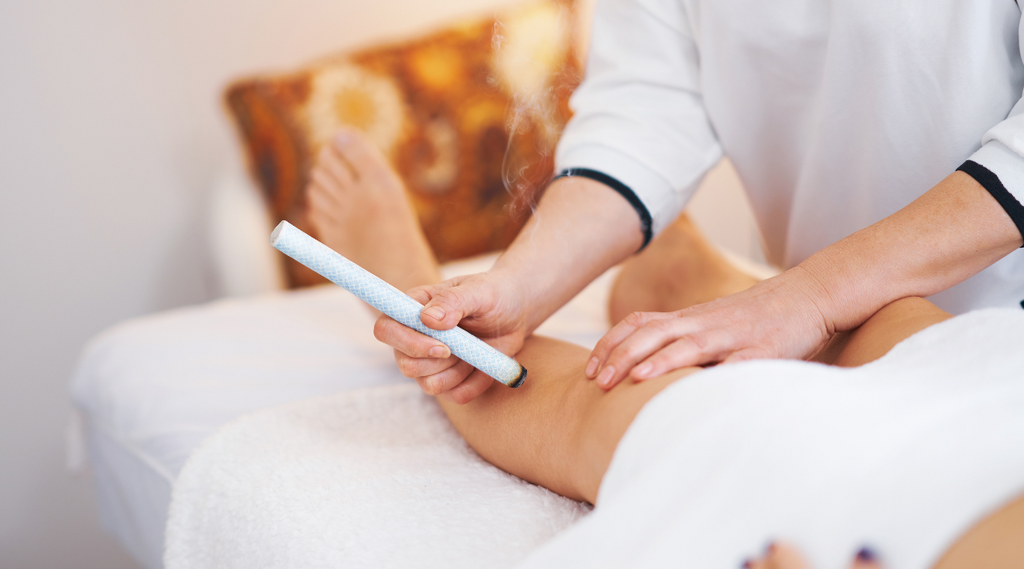
3. Tai Chi. This is a form of gentle exercise that involves fluid movements and deep breathing. It is believed to help manage arthritis symptoms through its ability to improve flexibility, reduce stiffness, and build muscle strength.
4. Diet. TCM recommends including anti-inflammatory foods in the diet for arthritis. These include green leafy vegetables, nuts, fish, and fruits such as strawberries, blueberries, cherries, and oranges. TCM also cautions against excessive consumption of red meat, fried foods, and sugary drinks.
5. Stress Management. In TCM, emotional well-being is considered equally important for overall health. Therefore, stress management techniques like meditation, deep breathing, and yoga may reduce both perceived and physical discomfort of arthritis to improve quality of life.
6. Heat Therapy. Applying heat to the affected joints, especially when cold exacerbates the condition, can help lessen pain and stiffness.
7. Tui Na Massage. Tui Na is a therapeutic form of massage and has been used in China for more than 2,000 years. It's thought to improve blood circulation and reduce joint stiffness.
Remember to consult with your healthcare provider or a trained TCM practitioner before starting any new treatment or therapy. Each person is unique and what works for one person may not work for another.
Conclusion
We hope this article has shed some light on the potential benefits of Chinese herbs for arthritis. Combining herbs with self-care practices and other complementary therapies can provide a natural, effective option for relieving arthritis and improving quality of life.
Our wish is to empower TCM practitioners and their patients with premium-level Chinese herbs to improve health and wellness naturally.
It is important to consult with a qualified Chinese medicine practitioner to determine the most appropriate formula for individual needs.
Practitioners, did you know...? Treasure of the East’s full-spectrum extracts contain the same active chemical constituents as raw herbs! Register for a professional account today, or read on to discover all the benefits of including full-spectrum granules in your herbal pharmacy.
This article is provided only as an educational resource - it is not intended or implied to be a substitute for professional medical advice, and the herbs and/or formulas within are not intended to diagnose, treat, cure or prevent any diseases. This information is intended for only licensed healthcare practitioners.
